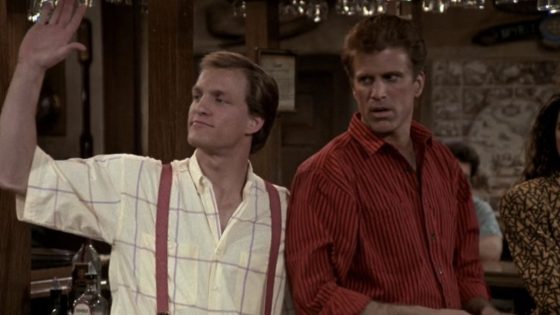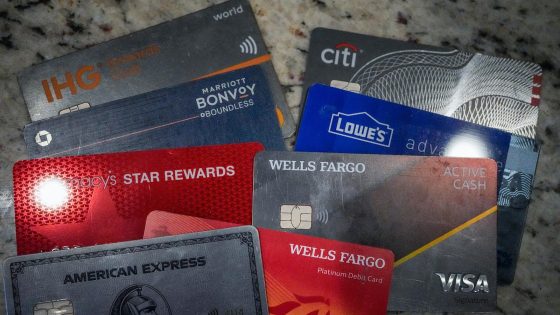Disney’s channels on DirecTV, including ABC and ESPN, have been dark for over a week as the two sides continue to trade barbs while trying to negotiate a new carriage deal to end the impasse.
Both sides appear to be dug in for the long-term — even with Disney poised to risk nearly $3.5 billion in revenue, or 4% of its total annual sales, and DirecTV to forego at least 700,000 subscribers just from losing the Sept. 9 Monday Night Football game, analysts told TheWrap.
If this dispute sounds familiar, that’s because it is. This same time last year, Disney was in a similar dispute with Spectrum parent Charter Communications, which was resolved after 11 days with a first-of-its-kind agreement.
But unlike Charter, which provides mobile and broadband service in addition to video, this fight is much more “existential,” DirecTV executives have argued. The satellite TV giant, which is owned by private equity firm TPG and AT&T, operates solely in the pay TV business and has accounted for nearly half of the industry’s net losses over the past five years, with the firm having an estimated 11.3 million subscribers at the end of 2023, according to Leichtman Research Group.
“Satellite providers in general in the pay TV ecosystem are the most vulnerable because they don’t have these other businesses to hedge against. DirecTV maybe gets a little bit of a hedge in providing service to folks in areas where YouTube TV isn’t even an option, but at the end of the day, they’re one business and it’s the pay TV business,” Shirin Malkani, Perkins Coie senior counsel and Sports Industry Group co-chair, told TheWrap.
“If people start cutting the cord, and particularly if they are in areas where they have the ability to sign up to a YouTube TV, they’re not ever going back to DirecTV and they know that,” Malkani added.
The impasse comes at a precarious time for the linear ecosystem, which continues to shed subscribers at a rapid pace due to cord-cutting. Bloomberg Intelligence estimates that the pay TV industry has lost nearly 30 million users between 2015 and 2023 and could lose another 6 million by the end of 2024. Even if virtual TV providers like YouTube TV and Hulu + Live TV reclaim 18.9 million, or 40%, of traditional cord-cutters by year end, the total pay TV subscriber base may fall below 50 million by 2027-28, the firm added.
If people start cutting the cord, and particularly if they are in areas where they have the ability to sign up to a YouTube TV, they’re not ever going back to DirecTV and they know that.
Shirin Malkani, Perkins Coie senior counsel and Sports Industry Group co-chair
The pay TV bundle could be further upended by Disney, Fox and Warner Bros. Discovery’s Venu Sports, a sports streaming joint venture that’s been temporarily blocked over antitrust concerns. DirecTV, which supported Fubo in its legal fight against Venu, has taken aim at the offering, arguing that it’s a prime example of offering a skinny, genre-based package to consumers and has only accentuated the current problems of the pay TV ecosystem.
Regardless of the outcome between Disney and DirecTV, “normal” carriage disputes of the past are long gone and this fight stems from events that started occurring four or five years ago, Leichtman Research founder Bruce Leichtman told TheWrap.
“Both sides know where the industry is going,” he said. “A big part of the decline in linear is not just about consumer demand, but it’s also about providers not being as interested in it as before because of their margins. A lot of what is going on with linear is about the behavior of the providers and how worthwhile they find the video business, and a lot of that will be decided as part of negotiations moving forward.”
A fight for flexibility
DirecTV is open to an agreement with Disney similar to the Charter deal.
The Charter resolution offered Spectrum TV Select subscribers ESPN+ and the ad-supported version of Disney+ along with ABC-owned stations, Disney Channel, FX, the Nat Geo Channel and the full suite of ESPN networks. Spectrum was able to drop long-tail networks Baby TV, Disney Junior, Disney XD, Freeform, FXM, FXX, Nat Geo Wild and Nat Geo Mundo.
But DirecTV has pointed to analyst estimates that less than 10% of Charter customers have activated Disney+ and that less than 4% have used ESPN+. Instead, the company is seeking to offer more flexibility through skinnier, genre-based packages.
Disney has said it has offered various options, such as a sports-centric bundle option featuring ESPN networks and ABC, an entertainment-based option featuring Disney’s entertainment networks and linear offerings paired with Disney’s direct-to-consumer subscription services like the Charter deal.
DirecTV has said Disney’s proposal is “laced” with minimum penetration requirements that limit the scope and reach of what it’s looking to offer.
According to Nielsen, more than 90% of DirecTV households watched Disney’s linear programming every month last year — amounting to more than 5 billion hours viewed in a single year. But on average, DirecTV argues, only two-thirds of its customers watch a combined three hours or more across Disney’s 16 available channels, which includes local ABC stations.
Less than 40% of DirecTV customers watch Disney sports content for at least three hours per month across seven available channels — and about 85% of its customers have to pay for those channels. The same holds for Disney’s entertainment channels, where 40% of DirecTV customers watch for a combined three hours or more on average per month, DirecTV says. But again, over 80% of its customers pay for those Disney channels and only 10% watch kids and family programming for a combined three hours or more on average per month — but nearly 80% of DirecTV customers are obligated to pay for them.

From missing Monday Night Football’s game alone, DirecTV could shed 700,000 subscribers including 315,565 traditional video customers in New York, roughly 173,000 in San Francisco and about 210,000 DirecTV Stream subscribers in both markets, estimated Bloomberg Intelligence analyst Geetha Ranganathan.
Though Disney has other options outside of DirecTV to distribute its content to consumers, Ranganathan estimated that almost $3.5 billion in revenue could be at risk for Disney if a deal isn’t struck — a figure that includes advertising revenue, $2.57 billion in affiliate revenue and $160 million in retransmission revenue.
Disney’s cable networks with ESPN bring in about $18.27 per subscriber a month and the satellite TV giant makes up 15-16% of ESPN’s linear subscriber base of 66 million, according to the firm. If DirecTV were to drop the same long-tail networks as Charter, Disney could lose around $285 million of annual affiliate revenue, Ranganathan estimates. She argued that DirecTV taking ESPN out of the bundle to put on a sports tier would be a “non-starter” for Disney, noting that it accounted for roughly 18% of the company’s total revenues of $88.9 billion in 2023.
Déjà Venu
The ongoing legal battle between Fubo and Venu Sports will be closely watched to determine how decades-long industry practices around pay TV bundling evolve. Fubo won a preliminary injunction to temporarily block the new platform. Fox, Disney and WBD have appealed the ruling. A pretrial conference is slated for Sept. 12 and a jury trial could begin by February.
The Venu ruling, which declared that current pay TV bundling practices “are bad for consumers,” could “open the door to a catastrophic finding that the bundling strategy that underpins the entire linear video ecosystem could potentially be found to be illegal” if the Fubo case were to go to trial, analysts with MoffettNathanson said. The firm warned that Venu’s “ham-fisted go-to-market strategy has started the ball rolling towards the complete collapse of the pay TV model as we know it.”
“Even without a full trial, there is a risk that the genie can’t be fully put back in the bottle, as the DirecTV/Disney blackout makes clear,” they added. “Pandora’s Box has already been opened.”
Ranganathan told TheWrap that the temporary block on Venu is a “net positive” for pay TV providers that is unlikely to be reversed on appeal, noting that Fubo’s underlying claim that the JV violates antitrust laws is on apparent “solid ground.”


“The Venu block might open the door for operators to be able to compile skinnier bundles of networks,” S&P Global analyst Scott Robson told TheWrap. “I don’t know if Disney is going to be as interested in launching Venu next year as they were in August given the ESPN direct-to-consumer product is set to launch in fall of 2025.”
On Saturday, DirecTV filed a complaint with the Federal Communications Commission, alleging that Disney has been negotiating in bad faith — in violation of the agency’s good faith mandates.
“Disney wants to force DirecTV to carry a ‘fat bundle’ including less desirable Disney programming — while itself offering cheaper, ‘skinnier’ bundles of programming that consumers want,” DirecTV argued, specifically citing Venu. It also “insisted that DirecTV agree to a ‘clean slate’ provision and a covenant not to sue, both of which are intended to prevent DirecTV from taking legal action regarding Disney’s anticompetitive demands, which would include filing good faith complaints at the Commission,” the complaint added.
In response to the complaint, Disney said it continues to negotiate with DirecTV to restore access to its content as quickly as possible, and urged DirecTV to “stop creating diversions and instead prioritize their customers by finalizing a deal that would allow their subscribers to watch our strong upcoming lineup of sports, news and entertainment programming.”
A contentious carriage negotiation landscape
Carriage disputes will only become more frequent and contentious going forward as pay TV operators look to be more strategic about their programming spend, analysts warned.
Ranganathan said the loss of NBA rights will be a “near death blow” for Warner Bros. Discovery as the media giant negotiates future carriage agreements. The impact will become clearer when the company’s carriage deal with Comcast comes up for renewal at the end of 2025.
“Some companies, like Paramount, have given discounted rates to operators and thrown in streaming services, but some might not be willing to do so,” Robson said. “WBD will likely have to take some rate reductions for TNT in 2025 given the loss of the NBA.”
At an investor conference last week, WBD CFO Gunnar Wiedenfels said he doesn’t anticipate a “dramatic change” in the value of its portfolio and that its carriage discussions have been “as constructive today as they were years ago.”
While “unbundling” could accelerate linear’s decline, it could “improve the price value of the bundle, expand consumer choice and reinvigorate distributor enthusiasm to market video,” LightShed Partners analyst Rich Greenfield said in a blog post. He emphasized that truly doing so means removing minimum penetration guarantees and provisions that require bundling similar channels from competitors.
“Creating new bundles that are still overly bloated or that cannot be offered beyond a minority of subscribers is pointless,” he added. “Either rip the Band-Aid or don’t bother.”
But Leichtman pointed out that skinny bundles already exist to some degree and that they’re just not what consumers, pay TV operators or media companies envision.
“The challenge of these skinny bundles is they’re missing pieces and that creates higher churn,” he said. “There’s not an overwhelming demand for a sports-only service. These are niche services.”
The post Why DirecTV’s ‘Existential’ Carriage Dispute With Disney Is a Fight for the Future of the Pay TV Bundle appeared first on TheWrap.
Source Agencies


